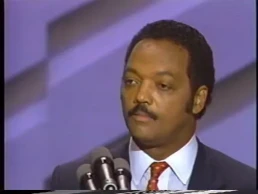The Biden administration is right to resist calls to deepen American military involvement in Ukraine. No one wins that game.
By Tom Z. Collina, The New York Times
In his stirring address to Congress on Wednesday, President Volodymyr Zelensky of Ukraine asked the United States for more help as his nation defends itself against a brutal and unjustified Russian invasion. Invoking the attacks on Pearl Harbor and the World Trade Center, Mr. Zelensky said simply, “I call on you to do more.”
Given the stakes, the United States can and should do more to end the war and help alleviate human suffering in Ukraine. We were already providing weapons for the Ukrainians to defend themselves, such as Stinger antiaircraft missiles and Javelin antitank missiles, as well as hitting Russia with huge economic sanctions. And soon after Mr. Zelensky’s speech, President Biden announced that the United States would send an additional $800 million in military assistance to Ukraine, as part of a $14 billion support package he had already approved.

But there is a limit to how far we should go. Even as our hearts go out to the brave Ukrainian people, the Biden administration is right to resist calls to deepen American military involvement in Ukraine, because the consequences of a direct confrontation between NATO and Russia could be unimaginably dire. If Mr. Biden bows to public pressure and, for instance, attempts to create a no-fly zone in Ukraine, we could be stepping on the path to nuclear war. As the U.N. secretary general, António Guterres, said this week, “The prospect of nuclear conflict, once unthinkable, is now back within the realm of possibility.”
A product of the Cold War, Mr. Biden well understands that direct U.S.-Russian conflict could escalate to nuclear war. The Soviet Union may have disappeared 30 years ago, but its nuclear weapons did not, and neither did ours. If they are used, the consequences would be horrific — instant death for people in the immediate blast area followed by environmental destruction, possible famine and more death as the radiation spread. It could mean the end of civilization as we know it.
The Biden administration is keenly aware of the risks. Mr. Biden said on March 11: “We will not fight a war against Russia in Ukraine. Direct conflict between NATO and Russia is World War III, something we must strive to prevent.” The administration has rightly ruled out sending U.S. troops to Ukraine for now, sending them instead to NATO states, which the administration has vowed to defend. And Mr. Biden has wisely refused to consider anything that might provoke direct conflict with Russia, not only rejecting a no-fly zone but also resisting a Polish offer to provide Soviet-era MIG fighter jets to Ukraine.
But as the humanitarian toll in Ukraine increases, so, too, will the pressure to do more. For many here in the United States, it will be deeply frustrating that the threat of nuclear war limits what we do. President Vladimir Putin of Russia warned that “anyone who tries to interfere with us” will suffer “consequences you have never faced in your history.” He is, in effect, using his nuclear arsenal as a terrorist weapon to hold Ukraine hostage and keep other nations out. Is he bluffing? Maybe. But given the potential consequences, we can’t afford to be wrong.
What can we do? First, we must stay the course and end this brutal war. The sanctions that have already been imposed on Russia and the weapons that the Pentagon is sending to Ukraine are meant to raise the cost of the conflict to Mr. Putin, so that he will eventually see the wisdom of a political settlement. Both of those efforts must go on while the White House continues to avoid direct conflict between NATO and Russian troops. The longer the war lasts, the more painful it will become for both sides. As difficult as it may be to watch as Ukraine suffers, escalating the war could make it much worse.
Next, we must change our attitude toward nuclear weapons, understanding that the old ways of thinking are not only outdated but also dangerous. The U.S. nuclear arsenal does nothing for us in this conflict. It did not keep Mr. Putin out of Ukraine. Because he is willing to use the threat of nuclear war to deter intervention in Ukraine, the existence of nuclear weapons, if anything, helped enable him. He is the only one suggesting a willingness to use nukes as a cover to brutalize weaker states. We must continue to stigmatize and limit nuclear weapons to reduce the chances that Russia will do this again.
The Biden administration can help by changing its nuclear policies accordingly. Mr. Putin is threatening to use nuclear weapons first in this conflict. The Biden administration should rule out first use and seek to build an international consensus around the idea that the sole purpose for nuclear weapons is to deter their use by others. Mr. Biden has supported this position for years. In addition, the United States should start now to build international support for the deep reduction and eventual elimination of nuclear weapons so they cannot be used by strongmen and autocrats to enable their atrocities.
Recent Posts
U.S. Sent a Rescue Plane For Boat Strike Survivors. It Took 45 Hours To Arrive.
February 17, 2026
Take Action Now In seas that could kill a person within an hour, it took nearly two days for a rescue plane to arrive.By Tomi McCluskey and Nick…
“Keep Hope Alive”: Remembering Rev. Jesse Jackson, Civil Rights Icon Who Twice Ran For President
February 17, 2026
Take Action Now “Our father was a servant leader — not only to our family, but to the oppressed, the voiceless, and the overlooked around the…
The Iranian Trap: Neither Military Action Nor Nuclear Negotiations Can Solve Trump’s (and Israel’s) Conundrum
February 16, 2026
Take Action Now After a failed regime-change strategy and an increasingly risky military buildup, the Trump administration turns back to nuclear…
Suffocating an Island: What the U.S. Blockade Is Doing to Cuba
February 16, 2026
Take Action Now Electric motorcycles are Cuba’s response to the fuel crisis.By Medea Benjamin Marta Jiménez, a hairdresser in Cuba’s eastern city…




